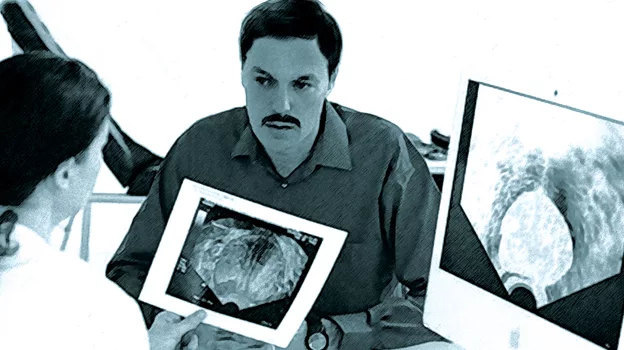Enlarged Prostate – Things you need to know
November 27, 2017

Dr. Rajiba Lochan Nayak is a Senior Consultant Urologist and Andrologist working at Apollo Spectra Hospitals, New Delhi. He has got his training in Genitourinary Surgery Urology from the esteemed University of Calcutta and has nearly 21 years of experience as a medical professional. Dr. Nayak specializes in Genitourinary Surgery Urology, which focuses on the male and female urinary tract system and the male reproductive organs. The organs under the domain of urology include the kidneys, adrenal glands, ureters, urinary bladder, urethra and the male reproductive organs. He also has a special interest in the prostate, stone, tumor, andrology, infertility (surgical), and advanced laparoscopic surgery. Who’s more likely to be diagnosed with prostate enlargement?
- According to the National Kidney and Urological Disease Information Clearinghouse, the most common prostate problem for men over 50 is a prostate enlargement. According to the American Urological Association (AUA), by the age of 60, almost one out of two men has Benign Prostatic Hyperplasia (BPH); and by 85, the number increases to a staggering 90%.
- Family history- A family history or ancestry with a similar condition, or any prostate problem, may increase your likelihood of developing prostate enlargement.
- Ethnicity– Ethnic backgrounds have a certain impact on prostate health. White men and black men are more prone to this in comparison to Asian men.
- Studies show that some health conditions like diabetes, heart diseases, and obesity also make one more prone to this condition.
When should I see a urologist or family physician?
Consult a specialist doctor if you notice the following symptoms:
- A weak or slow urinary stream
- A feeling of incomplete emptying of the bladder
- Difficulty starting urination
- Frequent urination
- Urgency to urinate
- Getting up frequently at night to urinate
- A urinary stream that starts and stops
- Straining to urinate
- Continued dribbling of urine
- Returning to urinate again minutes after finishing
Usually, Urologists also use the BPH Impact Index, which is a symptom questionnaire developed by the American Urological Association to determine if the symptoms observed require treatment. It also helps in the understanding of how severe the problem is. If the score is high, it indicates the severity of the problem. How to prevent prostate enlargement? There is no precise answer to this, as the preventive measures may not necessarily regulate prostate enlargement or benign prostate hyperplasia. A healthy lifestyle and regular exercises will keep your bladder healthy and help it function normally. However, here are some preventive measures that you can follow:
- Choosing a low-fat diet
- Preferring vegetables over meat
- Eating fish
- Restricting consumption of dairy products
What are the causes of prostate enlargement?
The exact cause for this health condition is not known. Few indicators such as changes in male sex hormones that come with aging may be a helpful factor in detecting the condition.
What are the non-surgical management/treatments available?
- Lifestyle changes
- Several medications that can help in treating the symptoms as well as the disease
What are the problems if not treated on time? Watchful Waiting with an Enlarged Prostate:
When the symptoms of an enlarged prostate gland are mild, with low scores on the BPH Impact Index (less than 8), it may be best to wait before starting any treatment. This is known as "watchful waiting." With regular checkups once a year or more often, doctors can check for early problems and signs that the condition is posing a health risk or a major inconvenience. Here, the BPH Index is especially helpful for early detection and treatment. Moreover, it may lead to various emergencies like:
- Sudden stoppage of urine
- Blood in urine
- Infection in urine
- Formation of stone in the bladder
When is a surgery required? A surgery is usually the last resort. Meanwhile, medications and non-surgical treatments are used if the problem is not severe. However, in the cases mentioned below, a surgery might be required:
- If the patient is not relieved of symptoms with medications and lifestyle changes
- If it leads to back pressure or changes in bladder and kidney
- Repeated urinary tract infection and blood in urine
- If there are stones in urinary bladder
- If urine stops coming, leading to catheterization
NOTICE BOARD
CONTACT US
CONTACT US
 Book Appointment
Book Appointment


.svg)
.svg)
.svg)
.svg)








